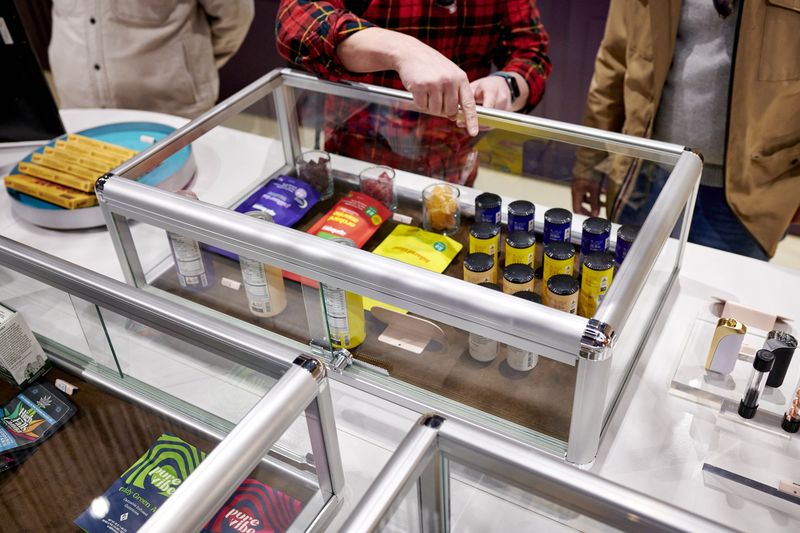Stuck in the Village
New York City’s push into legal recreational weed is facing more hurdles.
The latest problem is that a quirk in the way the state doles out its first licenses gives shops a lot of leeway in where they open. As a result, the initial three dispensaries in the city are clustered together in downtown Manhattan’s Greenwich Village.
While this is just the beginning of the city’s foray into building a cannabis industry, the rollout raises more questions about how successful it will be. The state legalized weed in March 2021, but just recently started issuing licenses, with the first store opening in Manhattan at the end of December.
The city’s first three legal cannabis dispensaries have opened within about 10 blocks of each other
Meanwhile, unregulated cannabis shops have proliferated across the city and gobbled up market share. And given health concerns around addiction and high-potency weed and THC products, some communities might push back against dispensaries.
To win customers, the industry is betting that New Yorkers will be lured to cannabis products that have been tested by the state. Legal dispensaries have the advantage of appealing to non-cannabis users who might be more willing to experiment with products that are regulated, according to Paul Yau, chief executive officer of Union Square Travel Agency, which this month opened a legal dispensary in partnership with a nonprofit.
“We are, and we’re not, in direct competition” with the unregulated shops, says Yau, whose company says it gives more than half its proceeds to the Doe Fund, which helps previously incarcerated men — many with marijuana convictions — to get jobs.
NYC’s Cannabis Capital Leaves Other Neighborhoods ‘Jealous’
Customers shop at Union Square Travel Agency, a cannabis shop in Manhattan
Early on, it looks like these legal shops might work well with the first few locations consistently generating long lines. The rationale for putting stores in this part of Manhattan makes sense because it’s popular with tourists and centrally located near a transit hub.
But a central part of New York’s legalization effort was to help the communities — many outside Manhattan — hurt by drug enforcement when weed was illegal.
The first licenses are being given to non-profits and entrepreneurs who served jail time for cannabis offenses or have a family member who did. They apply to open up in a region of the state. Once granted, the shop owner then selects the store’s location.
But the early concentration in Manhattan doesn’t include neighborhoods in the outer boroughs that were hardest hit by drug enforcement.
“I have my concerns that those communities that were most impacted during the marijuana enforcement here in New York City are not at the front of the line of these opportunities,” says Terrence Coffie, an adjunct lecturer on criminal justice at New York University.
Officials haven’t announced where future dispensaries will be located in New York. But the city is still dedicated to expanding beyond a small chunk of Manhattan.
“We are committed to facilitating the creation of a thriving legal cannabis market in all five boroughs that undoes the harms inflicted by past criminalization,” says Dasheeda Dawson, a who runs a division of city government focused on serving the cannabis industry. It looks like Queens will be next, she said.
H/T: www.bloomberg.com




 New York Teens Are Sipping Less, Choosing More Mindful Vices
New York Teens Are Sipping Less, Choosing More Mindful Vices Massachusetts Cannabis Reform: What’s Changing & Why It Matters
Massachusetts Cannabis Reform: What’s Changing & Why It Matters Maine Hikes Tobacco & Cannabis Taxes to Boost Budget
Maine Hikes Tobacco & Cannabis Taxes to Boost Budget